
Lesbian, gay, bisexual, and transgender (LGBTQ) people in Jamaica face legal and social issues not experienced by heterosexual and gender-conforming people. Consensual sexual intercourse between same-sex partners is legally punishable by up to 10 years of imprisonment in the country.

Lesbian, gay, bisexual, and transgender (LGBT) people in Nigeria face severe challenges not experienced by non-LGBTQ residents. LGBT rights are generally infringed upon; both male and female expressions of homosexuality are illegal in Nigeria and punishable by up to 14 years of prison in the conventional court system. There is no legal protection for LGBT rights in Nigeria—a largely conservative country of more than 230 million people, split between a mainly Muslim north and a mainly Christian south. Very few LGBT persons are open about their sexual orientation, as violence against them is frequent. According to PinkNews, Nigerian authorities generally target the LGBT community. Many LGBT Nigerians are fleeing to countries with progressive law to seek protection.

Lesbian, gay, bisexual and transgender (LGBT) individuals in the Republic of the Philippines have faced many difficulties in their homeland, such as prejudice, violence, abuse, assault, harassment and other forms of anti-LGBT rhetoric. Many LGBT Filipinos are met with mixed attitudes and reactions by their families, friends and others in their communities, as well as professionals, educators, their national public officials, politicians, attorneys and others working for the government and the rest of the general population.
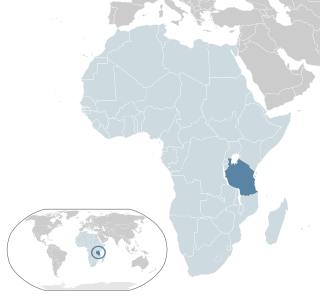
Lesbian, gay, bisexual, and transgender (LGBT) people in Tanzania face severe challenges not experienced by non-LGBTQ residents. Homosexuality in Tanzania is a socially taboo topic, and same-sex sexual acts are criminal offences, punishable with life imprisonment. The law also criminalises heterosexuals who engage in oral sex and anal intercourse.

Lesbian, gay, bisexual, and transgender (LGBT) people in Trinidad and Tobago face legal challenges not experienced by non-LGBTQ residents. Households headed by same-sex couples are not eligible for the same rights and benefits as that of opposite-sex couples.

Lesbian, gay, bisexual, and transgender (LGBT) people in the Gambia face significant challenges not experienced by non-LGBT residents. Same-sex sexual activity is illegal for both men and women in the Gambia. Criminalisation commenced under the colonial rule of the British. The 1933 Criminal Code provides penalties of prison terms of up to fourteen years. In 2014, the country amended its code to impose even harsher penalties of life imprisonment for "aggravated" cases. The gender expression of transgender individuals is also legally restricted in the country. While the United States Department of State reports that the laws against homosexual activity are not "actively enforced", arrests have occurred; the NGO Human Rights Watch, reports regular organised actions by law enforcement against persons suspected of homosexuality and gender non-conformity.
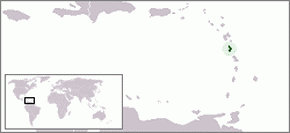
Lesbian, gay, bisexual, and transgender (LGBT) people in Dominica face legal challenges not experienced by non-LGBTQ residents. Homosexuality has been legal since 2024, when the High Court struck down the country's colonial-era sodomy law. Dominica provides no recognition to same-sex unions, whether in the form of marriage or civil unions, and no law prohibits discrimination on the basis of sexual orientation or gender identity.

Lesbian, gay, bisexual, and transgender (LGBT) people in Guyana face legal and societal challenges not experienced by non-LGBTQ residents. Guyana is the only country in South America, and the only mainland country in the Americas, where homosexual acts, including anal sex and oral sex, are illegal. Cross-dressing was illegal until November 2018, when the statute was struck down by the Caribbean Court of Justice, the court of last resort of Guyana.

Lesbian, gay, bisexual, and transgender (LGBT) people in Malawi face legal challenges not experienced by non-LGBTQ residents. Both male and female expressions of same-sex sexual activity are illegal within the nation. The Penal Code prohibits "carnal knowledge against the order of nature", attempts to commit "carnal knowledge against the order of nature", and acts of "gross indecency". Homosexuality among men is punishable by up to 14 years in prison in the country, while homosexuality among women is also punishable by up to five years in prison. There are no protections for LGBT rights in the country.
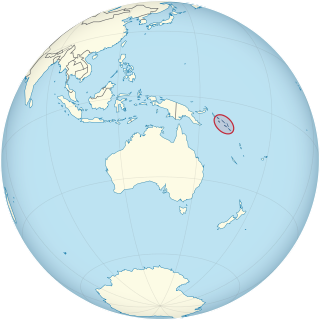
Lesbian, gay, bisexual, and transgender (LGBT) people in Solomon Islands face legal challenges not experienced by non-LGBTQ residents. Male same-sex sexual activity is illegal, punishable by up to 14 years imprisonment, but the law is not enforced.
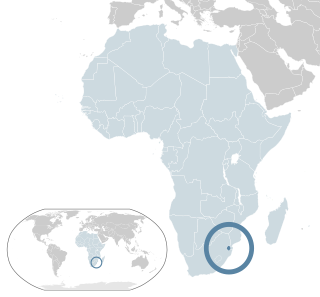
Lesbian, gay, bisexual, and transgender (LGBT) people in Eswatini have limited legal rights. According to Rock of Hope, a Swati LGBT advocacy group, "there is no legislation recognising LGBTIs or protecting the right to a non-heterosexual orientation and gender identity and as a result [LGBT people] cannot be open about their orientation or gender identity for fear of rejection and discrimination." Homosexuality is illegal in Eswatini, though this law is in practice unenforced. According to the 2021 Human Rights Practices Report from the US Department of State, "there has never been an arrest or prosecution for consensual same-sex conduct."

Lesbian, gay, bisexual, and transgender (LGBT) people in Uganda face severe legal and social challenges not experienced by non-LGBTQ residents. Same-sex sexual activity is illegal for both men and women in Uganda. It was originally criminalised by British colonial laws introduced when Uganda became a British protectorate, and these laws have been retained since the country gained its independence.

This is a list of important events relating to the LGBT community from 1801 to 1900. The earliest published studies of lesbian activity were written in the early 19th century.

A sodomy law is a law that defines certain sexual acts as crimes. The precise sexual acts meant by the term sodomy are rarely spelled out in the law, but are typically understood and defined by many courts and jurisdictions to include any or all forms of sexual acts that are illegal, illicit, unlawful, unnatural and immoral. Sodomy typically includes anal sex, oral sex, manual sex, and bestiality. In practice, sodomy laws have rarely been enforced to target against sexual activities between individuals of the opposite sex, and have mostly been used to target against sexual activities between individuals of the same sex.

Lesbian, gay, bisexual, and transgender (LGBT) persons in Antigua and Barbuda may face legal challenges not experienced by non-LGBTQ citizens.
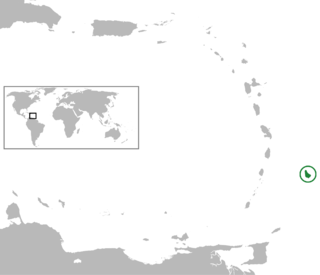
Lesbian, gay, bisexual, and transgender (LGBT) people in Barbados do not possess the same legal rights as non-LGBT people. In December 2022, the courts ruled Barbados' laws against buggery and "gross indecency" were unconstitutional and struck them from the Sexual Offences Act. However, there is no recognition of same-sex relationships and only limited legal protections against discrimination.
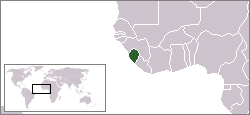
Lesbian, gay, bisexual, and transgender (LGBT) people in Sierra Leone face legal challenges not experienced by non-LGBTQ residents. Male same-sex sexual activity is illegal in Sierra Leone and carries a possible penalty of life imprisonment, although this law is seldom enforced.

Lesbian, gay, bisexual, and transgender (LGBT) people in Niue face legal challenges not experienced by non-LGBTQ residents. Male same-sex sexual activity is illegal in Niue, although there is no recent instance of it being actively prosecuted. Same-sex couples and households headed by same-sex couples are not eligible for the same legal protections available to opposite-sex married couples.

Lesbian, gay, bisexual, and transgender (LGBT) people in Saint Kitts and Nevis face legal challenges not experienced by non-LGBTQ residents. In 2022, Saint Kitts and Nevis rescinded its criminalization of homosexuality. However, the national penal code does not address discrimination or harassment on the account of sexual orientation or gender identity, nor does the law recognize same sex unions in any form, whether it be marriage or partnerships. Households headed by same-sex couples are also not eligible for any of the same rights given to opposite-sex married couples.

Lesbian, gay, bisexual and transgender (LGBT) people in Saint Vincent and the Grenadines face legal challenges not experienced by non-LGBT residents. The Penal Code makes same-sex sexual acts illegal with a punishment up to 10 years in prison, although the law is not enforced. In addition, it outlaws the practice of "buggery", whether homosexual or heterosexual and irrespective of whether the act was consensual. The country's laws also do not address discrimination or harassment on account of sexual orientation or gender identity, nor recognize same-sex unions in any form, whether it be marriage or partnerships. Households headed by same-sex couples are not eligible for any of the same rights given to opposite-sex married couples. In 2024, Saint Vincent and the Grenadines upheld its constitutional ban on same-sex sexual activity within its High Court.
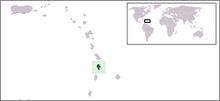
![Recognition of same-sex unions in the Lesser Antilles and Puerto Rico
.mw-parser-output .legend{page-break-inside:avoid;break-inside:avoid-column}.mw-parser-output .legend-color{display:inline-block;min-width:1.25em;height:1.25em;line-height:1.25;margin:1px 0;text-align:center;border:1px solid black;background-color:transparent;color:black}.mw-parser-output .legend-text{}
Same-sex marriage
Unregistered cohabitation
Island subject to IACHR ruling
No recognition of same-sex couples
Constitutional ban on same-sex marriage
Same-sex sexual activity illegal but penalties not enforced
.mw-parser-output .hlist dl,.mw-parser-output .hlist ol,.mw-parser-output .hlist ul{margin:0;padding:0}.mw-parser-output .hlist dd,.mw-parser-output .hlist dt,.mw-parser-output .hlist li{margin:0;display:inline}.mw-parser-output .hlist.inline,.mw-parser-output .hlist.inline dl,.mw-parser-output .hlist.inline ol,.mw-parser-output .hlist.inline ul,.mw-parser-output .hlist dl dl,.mw-parser-output .hlist dl ol,.mw-parser-output .hlist dl ul,.mw-parser-output .hlist ol dl,.mw-parser-output .hlist ol ol,.mw-parser-output .hlist ol ul,.mw-parser-output .hlist ul dl,.mw-parser-output .hlist ul ol,.mw-parser-output .hlist ul ul{display:inline}.mw-parser-output .hlist .mw-empty-li{display:none}.mw-parser-output .hlist dt::after{content:": "}.mw-parser-output .hlist dd::after,.mw-parser-output .hlist li::after{content:" * ";font-weight:bold}.mw-parser-output .hlist dd:last-child::after,.mw-parser-output .hlist dt:last-child::after,.mw-parser-output .hlist li:last-child::after{content:none}.mw-parser-output .hlist dd dd:first-child::before,.mw-parser-output .hlist dd dt:first-child::before,.mw-parser-output .hlist dd li:first-child::before,.mw-parser-output .hlist dt dd:first-child::before,.mw-parser-output .hlist dt dt:first-child::before,.mw-parser-output .hlist dt li:first-child::before,.mw-parser-output .hlist li dd:first-child::before,.mw-parser-output .hlist li dt:first-child::before,.mw-parser-output .hlist li li:first-child::before{content:" (";font-weight:normal}.mw-parser-output .hlist dd dd:last-child::after,.mw-parser-output .hlist dd dt:last-child::after,.mw-parser-output .hlist dd li:last-child::after,.mw-parser-output .hlist dt dd:last-child::after,.mw-parser-output .hlist dt dt:last-child::after,.mw-parser-output .hlist dt li:last-child::after,.mw-parser-output .hlist li dd:last-child::after,.mw-parser-output .hlist li dt:last-child::after,.mw-parser-output .hlist li li:last-child::after{content:")";font-weight:normal}.mw-parser-output .hlist ol{counter-reset:listitem}.mw-parser-output .hlist ol>li{counter-increment:listitem}.mw-parser-output .hlist ol>li::before{content:" "counter(listitem)"\a0 "}.mw-parser-output .hlist dd ol>li:first-child::before,.mw-parser-output .hlist dt ol>li:first-child::before,.mw-parser-output .hlist li ol>li:first-child::before{content:" ("counter(listitem)"\a0 "}
.mw-parser-output .navbar{display:inline;font-size:88%;font-weight:normal}.mw-parser-output .navbar-collapse{float:left;text-align:left}.mw-parser-output .navbar-boxtext{word-spacing:0}.mw-parser-output .navbar ul{display:inline-block;white-space:nowrap;line-height:inherit}.mw-parser-output .navbar-brackets::before{margin-right:-0.125em;content:"[ "}.mw-parser-output .navbar-brackets::after{margin-left:-0.125em;content:" ]"}.mw-parser-output .navbar li{word-spacing:-0.125em}.mw-parser-output .navbar a>span,.mw-parser-output .navbar a>abbr{text-decoration:inherit}.mw-parser-output .navbar-mini abbr{font-variant:small-caps;border-bottom:none;text-decoration:none;cursor:inherit}.mw-parser-output .navbar-ct-full{font-size:114%;margin:0 7em}.mw-parser-output .navbar-ct-mini{font-size:114%;margin:0 4em}html.skin-theme-clientpref-night .mw-parser-output .navbar li a abbr{color:var(--color-base)!important}@media(prefers-color-scheme:dark){html.skin-theme-clientpref-os .mw-parser-output .navbar li a abbr{color:var(--color-base)!important}}@media print{.mw-parser-output .navbar{display:none!important}}
v
t
e Same-sex legislation Lesser Antilles (named).svg](http://upload.wikimedia.org/wikipedia/commons/thumb/d/dd/Same-sex_legislation_Lesser_Antilles_%28named%29.svg/280px-Same-sex_legislation_Lesser_Antilles_%28named%29.svg.png)



















